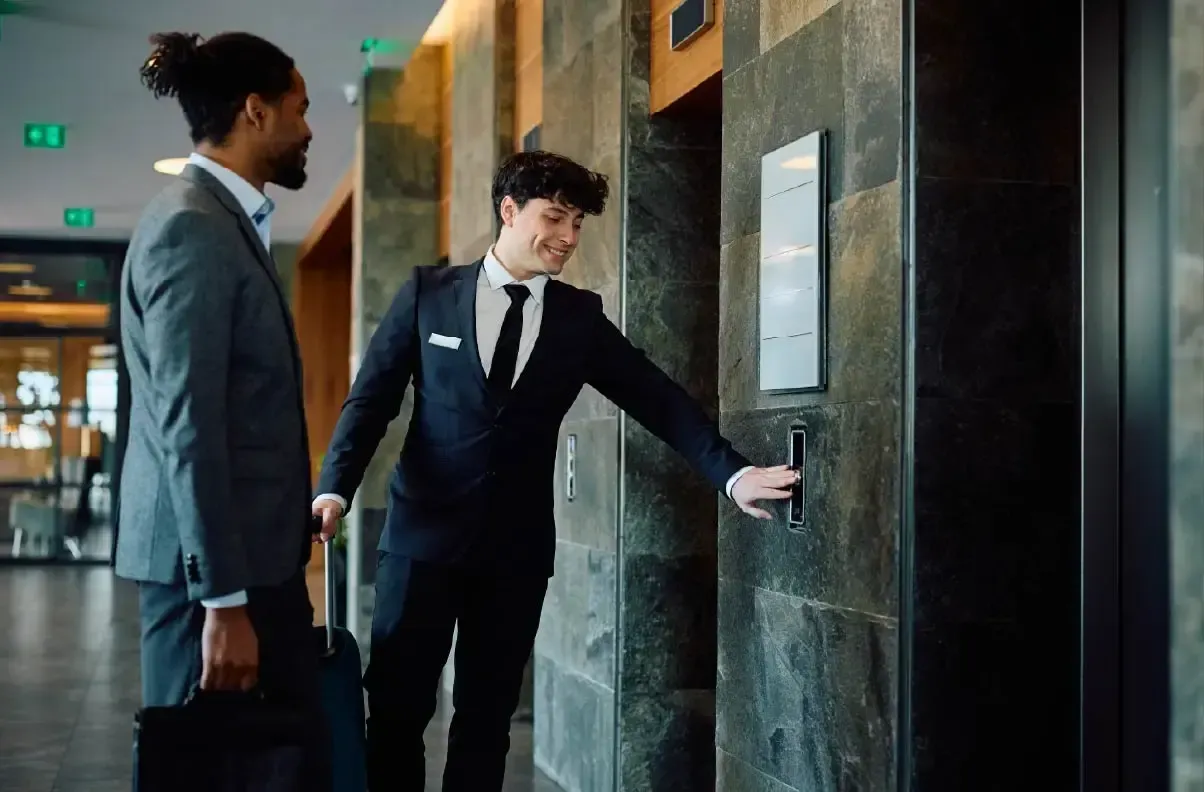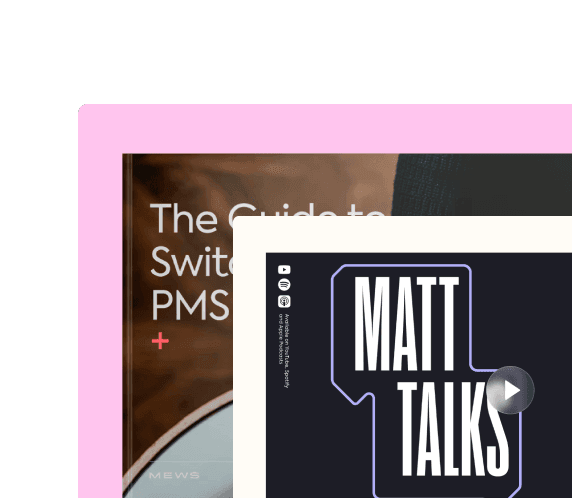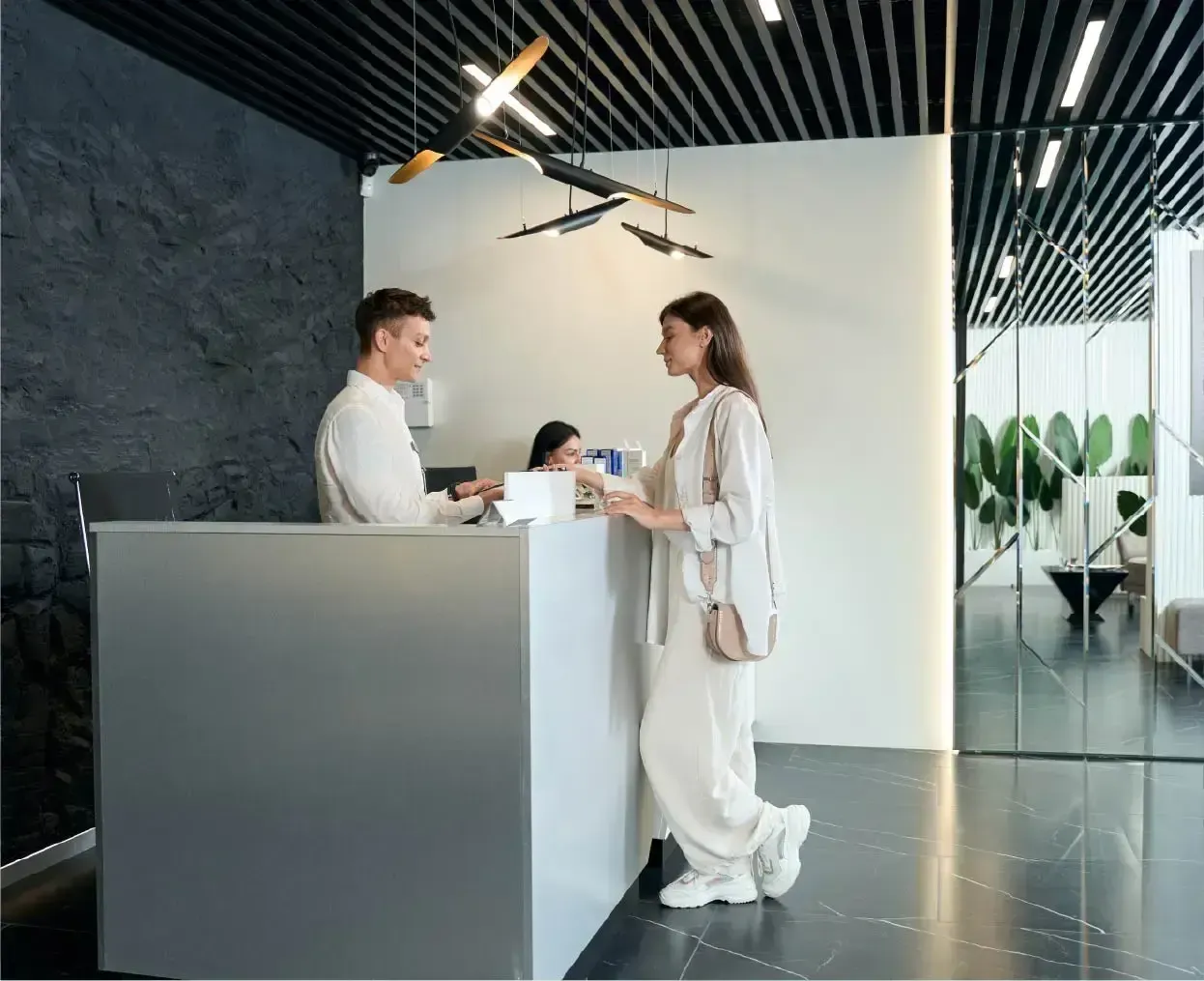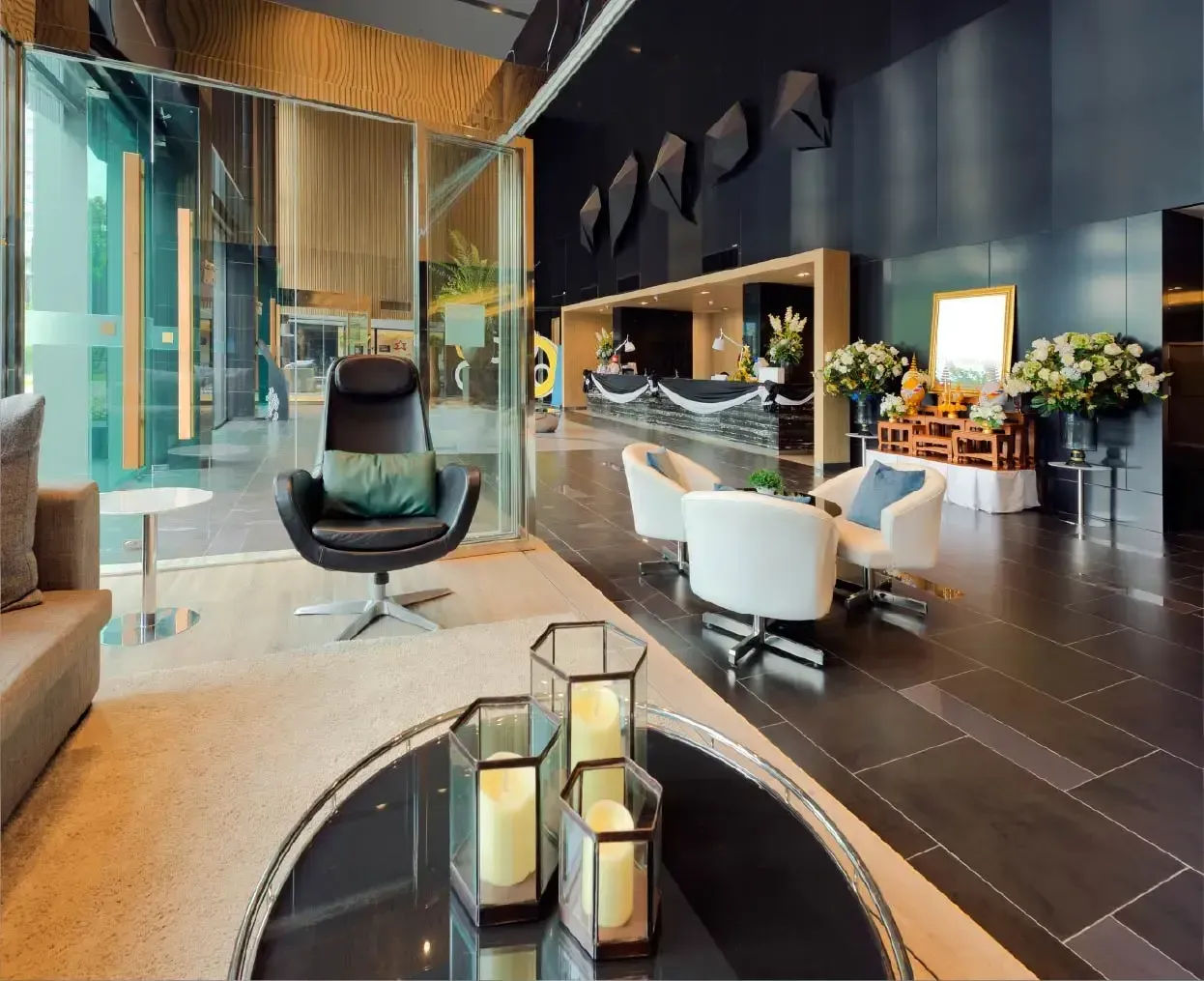A hotel PMSintegrates key elements of a hotel back office and frontdesk into a single software system. It facilitates guest loyalty programs, data collection and analysis, and F&B service management.Despite the numerous benefits of cloud-based PMS solutions, many hotels still rely on legacy software, handwritten records, or Excel spreadsheets. As a result, hoteliers are searching for a one-stop-shop solution to streamline all these processes.
To successfully run a hotel, you need to keep pace with technologicaldevelopments.Leveraging automation to handle daily admin tasks improvesservice quality and leads to greater guest satisfaction. A modern PMS lets you stand out from competitors and deliver remarkable guest experiences. However, choosing the best system for your property can be challenging.Let’s help you make the best choice.
What is a PMS in a hotel?
A PMS can manage hotel bookings and perform various admin duties. Its primary functions include payment processing, front-desk operations, reservations, and channel/rate management. Typically, this software oversees financial transactions and bookings, although some hoteliers also use it to manage human resources and housekeeping. Its purpose is to facilitate the core operations of a hotel, encompassing both external and internal processes.
Today, virtually every property in the hospitality sector, from small hostels to large hotel chains, utilizes a PMS. It enables hotels to monitor room booking statuses and handle reservations. However, its capabilities extend beyond these basic functions. With a hotel property management system, hoteliers can also manage food and beverage services, streamline back-office processes, and monitor room occupancy rates. Let's delve deeper into the key functions supported by most systems.
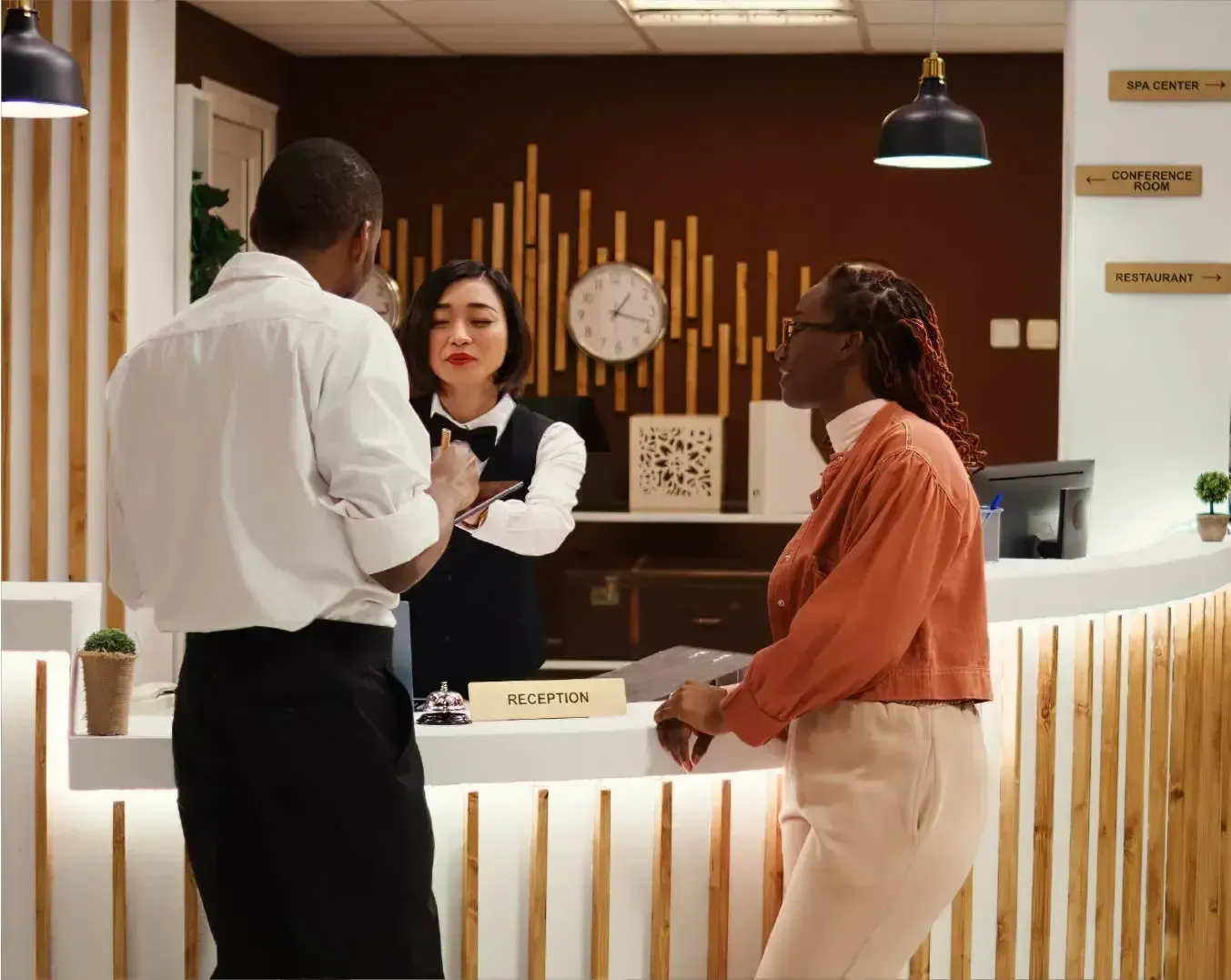
How does a hotel PMS work?
A property management system offers a range of features and functionalities to streamline hotel operations, manage complex tasks, and consolidate daily activities into one centralized platform.
Manage complex tasks like accounting
Hotels can leverage PMS software to efficiently handle time-consuming and complex tasks such as accounting, currency exchange, billing, cashiering duties, and posting. Modern systems streamline the capture of ledgers, financials, and trial balances, enabling quick report generation. Additionally, managing both advance reservations and walk-in bookings is straightforward with these systems, making it convenient to record vital guest information, especially for large group bookings.
Take care of housekeeping and maintenance
Before guests can check-in, ensuring clean rooms is essential. PMS housekeeping software can mark room statuses as inspected, dirty, clean, out-of-service, or out-of-order. These systems also include helpful features like a lost property database and employee scheduling tools. A well-designed PMS enables staff to report maintenance issues, monitor progress in resolving them, and efficiently manage rooms that are out of service or out of order.
Facilitate smooth check-in and check outs
A modern PMS streamlines the check-in and check-out process, enabling staff to quickly access and update guest information as needed. Additionally, all departments can generate customized reports tailored to their specific needs.
Better manage guest profiles and occupancy data
A well-designed property management system features a clear home screen dashboard that displays information about in-house guests, arrivals, and occupancy percentages. Many of these solutions also provide occupancy forecasts for yield and rate management. A PMS simplifies the conversion of these reports into XLSX, PDF, or email format, enabling managers to leverage this data for informed decision-making.
Main capabilities of a PMS
A property management system has many capabilities, designed to help properties more efficiently manage their properties. Some of the most popular functionalities and capabilities are listed below.
Reservation management
Making reservations, managing room availability, rates, and guest preferences are all crucial functions of a PMS. This software also allows you to efficiently store guest profiles, information, and preferences, enabling you to personalize their experience and tailor your offerings to meet their specific needs and interests.
Operations
The front desk plays a crucial role in hotel operations, from managing check-ins and check-outs to room assignments and service requests. A good PMS can efficiently manage all these requests and operations in one place. It can also help you assign housekeeping tasks, manage cleaning statuses, and ensure smooth and timely room turnovers. The system should allow you to track and schedule maintenance tasks effectively. This centralized approach streamlines operations and enhances guest satisfaction.
Revenue management
Being able to manage prices and forecast based on market demand is another crucial capability of a PMS. This software helps understand occupancy, RevPAR and ADR to achieve financial success. Machine learning can enhance occupancy rate forecasting and enable data-informed pricing decisions, including the implementation of dynamic pricing strategies. This allows you to distribute rates across channels effectively to maximize revenue and occupancy.
Multi-property management and mobile accessibility
If your hotel operates multiple properties, a PMS enables better management of group bookings, unified reporting across properties, and sharing of guest databases. Mobile accessibility empowers staff to manage operations on the go, and guests can conveniently check in and out using their mobile devices.
What are the benefits of using a property management system?
Huge time savings
This technology automates recurring tasks such as invoicing guests, updating room availability, and sending pre-arrival emails to guests. This way, you’ll have more spare time to spend on other tasks, like keeping your guests satisfied.
Improved efficiency and security
Hotels that rely on Excel spreadsheets or handwritten records to manage front-office duties like billing, room availability, and reservations often face inefficiencies in the long term. Additionally, if their paper documents or spreadsheets are lost or destroyed, they have no backup plan in place.
Higher revenue
Modern hotel management systems can collect data to monitor your hotel's performance and generate related reports. They allow you to track how well your property is performing, which can inform and improve your business strategy. You could use your system to implement a dynamic pricing structure, ensuring more rooms are occupied at competitive rates.
More convenience
Hotel management systems can be integrated with channel management software, allowing you to accept reservations from various online channels. Each reservation will then appear in your PMS, making it easy to manage all bookings from a centralized location. This integration streamlines the reservation process and ensures efficient management of online bookings across multiple platforms.

And the problems?
While a PMS offers numerous benefits, there are also drawbacks to consider, such as complexity. Large properties with unique requirements may struggle to adapt to a one-size-fits-all system, and integrating with external systems like accounting or CRM systems can be challenging. Therefore, it's essential to choose a PMS with native integrations or one that can easily accommodate your property's workflows and specific needs.
Cost is another consideration, especially for smaller properties. Ongoing fees for support or additional features can represent unexpected expenses for those operating on tight budgets. Additionally, relying heavily on technology can pose challenges if there are downtime or technical issues with the system. It's important to weigh these factors carefully when selecting a PMS to ensure it aligns with your property's requirements and budget constraints.
What should you consider when choosing PMS software?
Here’s a list of things to consider when choosing the right software for the specific needs of your hotel.
Cloud-native product with a mobile version
Typically, cloud software for hotels is cheaper than on-premises software, and there are no maintenance fees. Instead, cloud software users pay subscription fees based on the number of rooms in their hotels. Moreover, they are only charged for the modules they use. Cloud software is easier to integrate with other systems, such as GDSs and OTAs.
Additionally, cloud software can be updated smoothly and regularly, and it is often available in a mobile format. Having a tablet or mobile version helps different departments – such as front office, housekeeping, and management – communicate more effectively, leading to considerable improvements in guest services.
Integrations
Hoteliers who have existing systems or plan to integrate more software should ensure that their PMS vendor offers integration services and supports all necessary APIs. If your hotel already uses a CRM system, it's wise to choose a PMS that is compatible with it. This approach avoids the need to hire a third-party technical contractor for integration.
Customization options
The usage of your PMS will vary based on the type and size of your hotel. For instance, if your front-office module requires a bed-based rather than a room-based management system, check whether the vendor offers this level of customization.
User-friendly interface
The more user-friendly the interface is, the quicker your staff will adapt to it. If the interface is overly complicated, your operations might suffer during the transition period, and you may incur additional costs for staff training.
Price and return on investment
It's crucial to calculate the appropriate investment for your needs, whether you're purchasing an out-of-the-box solution, building a customized system, or upgrading your current PMS. Consider these factors: the impact on revenue and distribution, system maintenance and integration costs, and the time saved by automating certain tasks.
Customer support quality
Software can malfunction at any given moment, but it should not impact your hotel services. Therefore, round-the-clock customer support is vital. Before selecting a PMS, gather feedback about technical support from other hoteliers. Also, discuss support extensively with your vendor to ensure that technical problems won’t significantly affect your business.

Advantages and disadvantages of cloud-based PMS vs on-premises PMS
Cloud-based PMS advantages and disadvantages
The advantages of a cloud-based PMS include accessibility from anywhere with an internet connection, allowing modern hoteliers to manage remotely on-the-go. However, this can also present data security concerns if accessed from an insecure connection.
Another advantage of a cloud-based PMS is automatic updates, eliminating the need for time-consuming maintenance. However, in the event of issues, who can you turn to for support? This is why it’s important to choose a PMS with reliable customer support. Cloud-based PMS solutions typically have lower upfront costs due to their subscription-based models, making them more accessible to a wider range of properties.
On-premises PMS advantages and disadvantages
On-premises PMS offers greater control since it's installed and managed locally. However, this comes with higher upfront costs and investments in hardware, software, and IT infrastructure. While cloud-based PMS solutions are typically quicker to deploy, an on-premises system may experience downtime during the onboarding and live activation phases.
In terms of data security, on-premises PMS solutions can be more secure because data is stored and managed locally. However, this also makes remote management challenging due to the physical nature of the on-premises system. Additionally, scaling can be more difficult and costly due to the need for hardware upgrades.
Property management system future trends
There are undoubtedly many key trends to watch in the realm of PMS systems. First, there’s a significant increase in cloud adoption, resulting in a decline in on-premises systems use. With the growth of mobile-first technology, many hoteliers prioritize mobile accessibility when choosing their PMS, seeking to empower staff to manage operations from anywhere.
PMS systems are increasingly integrating with emerging technologies such as artificial intelligence, voice technology for in-room assistance, machine learning, and the internet of things. This enables hotels to enhance operational efficiency while delivering unique guest experiences. Another key trend is personalization, with guests relying on hotels to provide customized experiences, promotions, and recommendations tailored to their preferences.
As more PMS systems transition to the cloud, robust cybersecurity measures become essential to protect guest data and prevent breaches. Implementing measures like multi-factor authentication, encryption, and security audits will be crucial to meeting industry standards for data privacy.
Conclusion
Many hoteliers experience a shift in perspective when they begin using a cloud PMS with mobile access – and for good reason. With this technology, guests can use their smartphones to submit proof of identification, make payments, and check in remotely. As a result, when guests arrive, hotel staff can escort them to their rooms, bypassing front-desk formalities. Additionally, guests can communicate with staff members through an app or web portal to request services.
PMS vendors regularly introduce new features to their software to meet the evolving technological needs of hoteliers. With Mews, there's no need to modify your systems or incur additional expenses. All software updates are handled by the provider, ensuring seamless implementation. These updates are released frequently, so you'll immediately benefit from the latest enhancements.
Mews empowers hotels to monitor and manage on-site changes throughout the day. Modern PMS software integrates seamlessly with advanced solutions like virtual reality, AI, and robots, enabling hoteliers to attract more customers and increase bookings.
Thinking about upgrading to a cloud-based PMS?
Download "Your Ultimate PMS Buyer’s Guide"
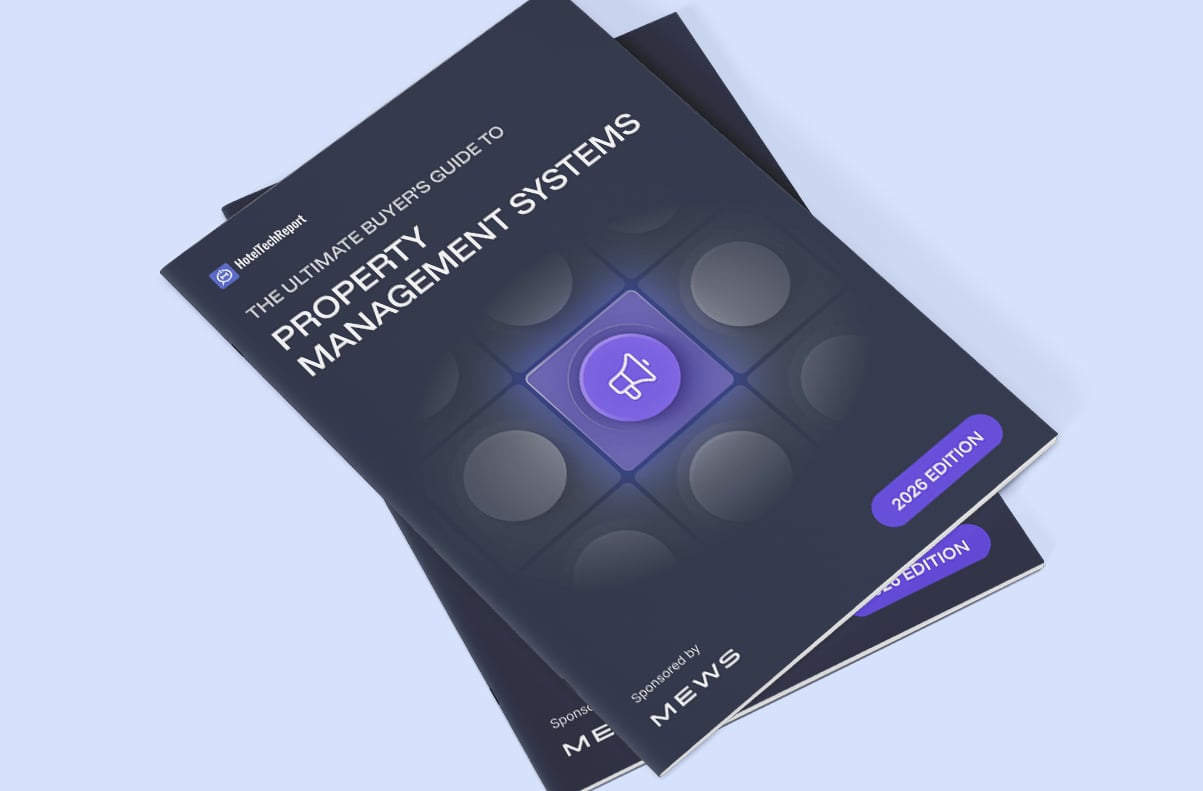
Written by

Eva Lacalle
Eva a plus d’une décennie d’expérience internationale dans le marketing, le marketing numérique, la communication et l’événementiel. Lorsqu’elle ne travaille pas, elle aime surfer, danser ou explorer le monde.



